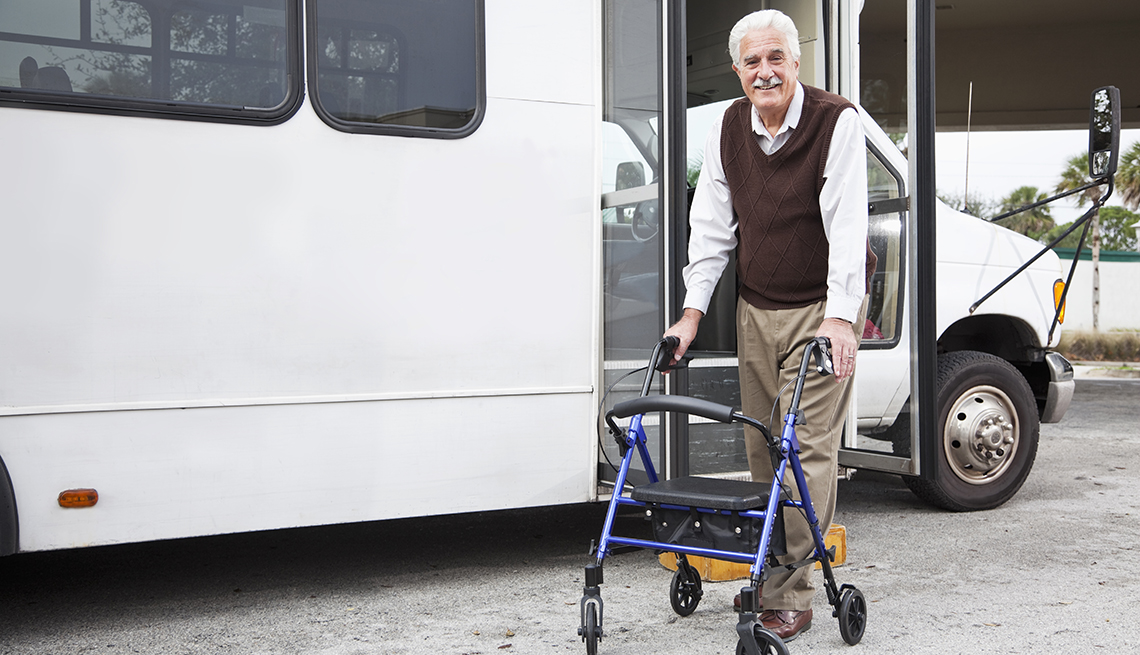Accessible and Affordable Medical Transportation Options for Seamless Wellness Assistance
In the realm of medical care, the accessibility and affordability of medical transportation are critical in ensuring individuals can access the treatment they need when they need it. The capability to perfectly navigate transport choices can considerably affect a person's capability to get timely clinical interest, follow-up treatment, and overall wellness. From non-emergency clinical transport services to innovative remedies like telehealth, the landscape of medical transportation is developing to fulfill the varied demands of patients. Thinking about the relevance of this element in healthcare shipment, discovering the array of options available becomes important for resolving voids in ease of access and price.
Non-Emergency Medical Transportation Solutions

These services are staffed by trained professionals that prioritize client convenience and safety throughout transportation. Drivers are geared up to handle individuals with varying medical requirements and make sure that all journeys are smooth and stress-free - Medical Transportation Services Near Me. Additionally, non-emergency clinical transport solutions often make use of specific cars that are wheelchair-accessible, making them ideal for a vast array of clients with various mobility demands
Volunteer Driver Programs
Volunteer vehicle driver programs are instrumental in giving transportation support for individuals seeking non-urgent medical care. These programs rely on the generosity of volunteers who donate their time and lorries to aid transportation individuals to and from medical visits. By utilizing volunteer drivers, companies can use an affordable service for people that might not have accessibility to reliable transport.
Among the key advantages of volunteer driver programs is the personalized treatment and focus that clients get. Unlike standard transportation solutions, volunteer chauffeurs usually create a connection with the people they help, developing a thoughtful and helpful atmosphere throughout what can be a demanding time. Furthermore, volunteer chauffeur programs can assist link the gap for individuals residing in country or underserved areas where mass transit options may be limited.
Public Transport Options

One of the essential Extra resources advantages of public transport is its prevalent availability in rural and urban locations alike. This comprehensive network permits people from diverse histories to take a trip to medical visits with relative ease. Additionally, public transportation systems are usually outfitted to suit individuals with disabilities, giving accessible traveling options for those with movement difficulties.

Ride-Sharing and Transport Network Companies
The evolution of modern-day transport options for medical purposes extends beyond typical public systems like trains and buses to incorporate the innovative world of ride-sharing and see this here transportation network firms. Ride-sharing solutions such as Uber and Lyft have revolutionized the way people take a trip to clinical appointments, offering comfort and flexibility to people that might not have accessibility to their lorries or conventional mass transit. These systems permit customers to ask for an adventure with the touch of a switch on their mobile phones, offering door-to-door solution that can be especially useful for people with wheelchair challenges or those calling for aid.
Transportation network firms (TNCs) have actually additionally played a substantial role in linking the space in medical transportation solutions. Firms like Veyo and RoundTrip focus on non-emergency medical transportation, dealing with patients who need a higher level of support during their journeys to clinical facilities. By partnering with medical care carriers and insurers, TNCs make certain that people can access reputable and prompt transportation solutions, eventually contributing to enhanced health results and person complete satisfaction.
Telehealth and Digital Examinations
Enhancing health care access and comfort, telehealth and virtual appointments have arised as essential elements in modern clinical techniques, transforming the way individuals engage with healthcare providers. Telehealth leverages technology to promote remote communication between patients and healthcare experts, offering a large selection of solutions such as digital consultations, remote monitoring, and digital prescriptions. Virtual assessments enable individuals to seek medical suggestions, medical diagnosis, and treatment from the convenience of their homes, getting rid of the requirement for physical sees to health care facilities. This method not just conserves time and decreases transportation expenses for patients but also improves the general performance of medical care shipment.
Moreover, telehealth plays an important role in extending medical services to underserved neighborhoods, country areas, and individuals with limited wheelchair. By damaging down geographical obstacles and raising healthcare outreach, telehealth promotes early treatment, continuity of care, and patient interaction. As modern technology proceeds to advancement, telehealth is positioned to play an increasingly substantial duty fit the future of medical care delivery, fostering improved wellness end results and individual contentment.
Conclusion

From non-emergency clinical transportation solutions to ingenious options like telehealth, the landscape of clinical transportation is progressing to meet the diverse requirements of patients.Non-Emergency Medical Transport Services assist in the timely and risk-free transportation of people needing non-urgent medical care to and from healthcare facilities.The advancement of modern-day transport alternatives for medical purposes extends beyond typical public systems like trains and buses to encompass the cutting-edge realm of ride-sharing and transport network companies.Transportation network companies (TNCs) have actually also played a considerable role in connecting the void in medical transport solutions. Non-Emergency Medical Transport Services, Volunteer Vehicle Driver Programs, Public Transportation Options, Ride-Sharing and Transport Network Firms, and Telehealth and Virtual Consultations all play an essential role in addressing transport barriers to medical care access.